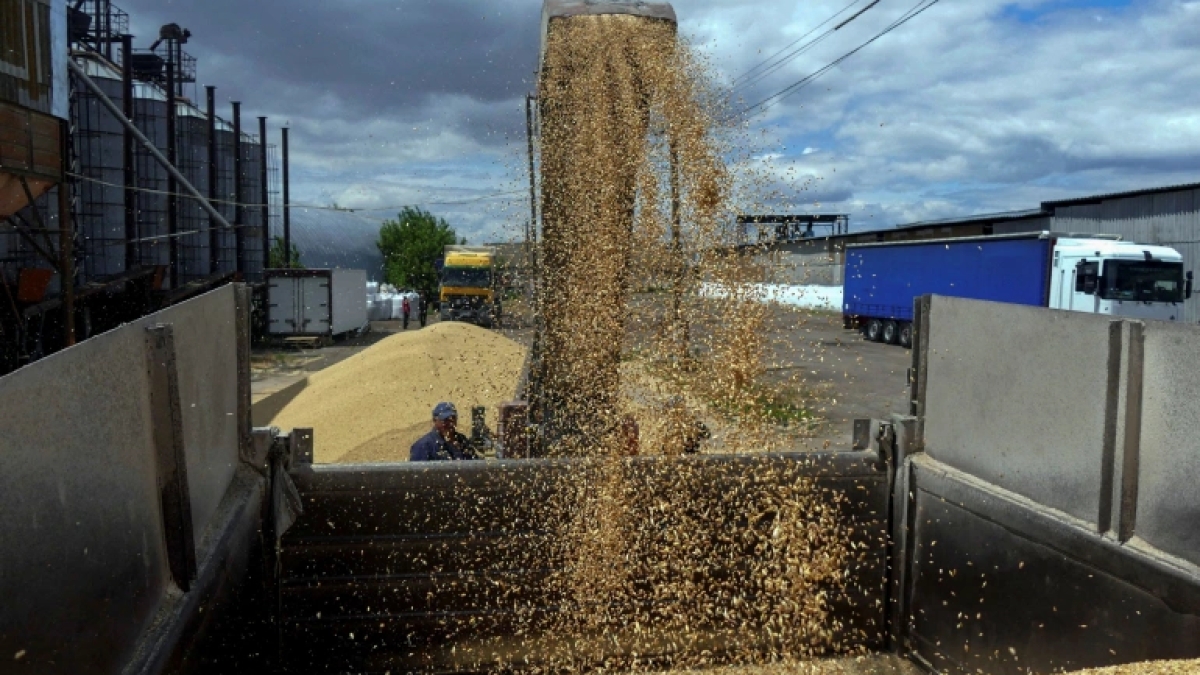Moscow suspended its participation in the Black Sea deal after blaming Ukraine for carrying out a drone attack in Crimea.
Western governments are calling on Russia to reverse its decision to pull out of a UN-brokered grain deal, a move that undermines efforts to ease a global food crisis, with Ukraine saying Moscow had planned the move well in advance.
The Turkey and UN-brokered deal was signed between Russia and Ukraine in July under which Moscow allowed the grain ships to leave Ukrainian Black Sea ports. The agreement has already allowed more than 9 million tonnes of Ukrainian grain to be exported and was due to be renewed on November 19.
Moscow suspended its participation in the deal on Saturday, effectively blocking shipments from Ukraine, one of the world’s top grain exporters, in response to what it called a major Ukrainian drone attack earlier in the day on its Black Sea Fleet headquarters near the port of Sevastopol in Russian-annexed Crimea.
“Russia’s decision to suspend participation in the Black Sea deal puts at risk the main export route of much needed grain and fertilisers to address the global food crisis caused by its war against Ukraine,” European Union foreign policy chief Josep Borrell said on Twitter on Sunday.
“The EU urges Russia to (reverse) its decision.”
Russia’s decision to suspend participation in the Black Sea deal puts at risks the main export route of much needed grain and fertilisers to address the global food crisis caused by its war against Ukraine.
The EU urges Russia to revert its decision.
— Josep Borrell Fontelles (@JosepBorrellF) October 30, 2022
The centre coordinating the deal’s logistics said in a statement that no traffic was planned for Sunday.
“A joint agreement has not been reached at the JCC for the movement of inbound and outbound vessels on 30 October,” it said in a statement. “There are more than ten vessels both outbound and inbound waiting to enter the corridor.”
US President Joe Biden on Saturday called the move “purely outrageous”, saying it would increase hunger, while US Secretary of State Antony Blinken accused Moscow of weaponising food. On Sunday, Russia’s ambassador to Washington responded, saying the US response was “outrageous” and made false assertions about Moscow’s move.
Russia’s defence ministry said Ukraine attacked the Black Sea Fleet near Sevastopol with 16 drones early on Saturday, and that British navy “specialists” had helped coordinate what it called a terrorist attack.
Russia said it had repelled the attack but that the ships targeted were involved in securing the grain corridor out of Ukraine’s Black Sea ports.
Ukrainian foreign minister Dmytro Kuleba said Moscow was using the explosions 220km (137 miles) away from the grain corridor as a “false pretext” for a long-intended move.
“Russia has planned this well in advance,” Kuleba said on Twitter.
“Russia took the decision to resume its hunger games long ago and now tries to justify it,” he said, without providing any evidence.
Stephane Dujarric, spokesman for the UN secretary-general, said the world body is in touch with Russian authorities and it is vital all parties refrain from any action that would impede the grain initiative.
‘Threat of famine’
Russia’s departure from the grain deal marks a new development in an eight-month war that began with Russia invading its neighbour in February and has recently been dominated by a Ukrainian counteroffensive and Russian drone and missile attacks that have destroyed more than 30 percent of Ukraine’s power generating capacity and hit populated areas.
Each side has accused the other of being prepared to detonate radioactive bombs.
Ukrainian President Volodymyr Zelenskyy called for a strong response from the United Nations and Group of 20 (G20) major economies to what he called Russia’s nonsensical move on the grain deal.
“This is a completely transparent attempt by Russia to return to the threat of large-scale famine for Africa, for Asia,” Zelenskyy said in a video address on Saturday, adding that Russia should be kicked out of the G20.
“This is food for more than 7 million consumers … Why is it that some handful of people somewhere in the Kremlin can decide whether there will be food on the tables of people in Egypt or Bangladesh?” he said.
